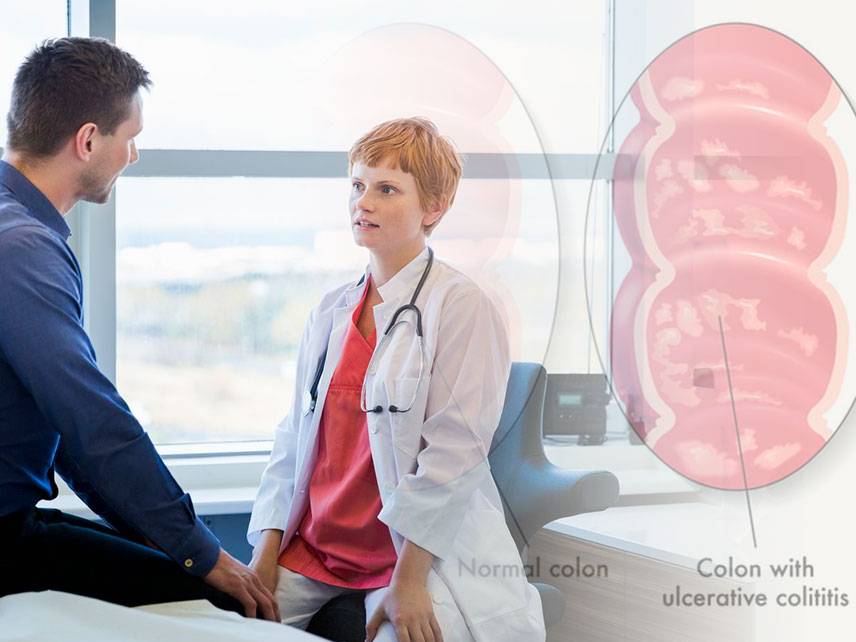Ulcerative colitis is a form of inflammatory bowel disease (IBD). It is a chronic condition that causes inflammation and ulcers in the colon and rectum. Ulcerative colitis can be difficult to diagnose and manage, but with the right treatment, many people are able to manage their symptoms and lead productive lives.
Signs and Symptoms
The signs and symptoms of ulcerative colitis can vary from person to person.
Common signs and symptoms include:
-
Abdominal pain and cramping
-
Diarrhea (often bloody)
-
Fatigue
-
Loss of appetite
-
Weight loss
-
Fever
-
Rectal pain
Causes
The exact cause of ulcerative colitis is unknown. It is believed to be caused by a combination of genetic, environmental and immunological factors.
Risk Factors
The following factors may increase the risk of developing ulcerative colitis:
-
Family history of IBD
-
Smoking
-
Stress
-
Living in an urban area
Prevention
There is no known way to prevent ulcerative colitis. However, some research suggests that avoiding cigarette smoke, eating a healthy diet, and managing stress may help reduce the risk.
Diagnosis
Ulcerative colitis is diagnosed through a combination of physical exams, blood tests, stool tests, X-rays and endoscopy. Endoscopy is the most accurate way to diagnose ulcerative colitis. During the procedure, a doctor will use a lighted tube to look inside the colon and rectum.
Treatment
Treatment for ulcerative colitis depends on the severity of the disease. Most people are able to manage their symptoms with medications, lifestyle changes, and dietary modifications. More severe cases may require surgery to remove the affected parts of the colon and rectum.
Coping and Support
Living with ulcerative colitis can be challenging. It’s important to find ways to cope with the disease and seek support from family and friends. Joining a support group for people with IBD can also be helpful.
Complications
Ulcerative colitis can lead to serious complications, including:
-
Anemia
-
Dehydration
-
Malnutrition
-
Bowel obstruction
-
Colon cancer
Living with Ulcerative Colitis
Living with ulcerative colitis can be difficult, but there are ways to manage the disease. Eating a healthy diet, managing stress, and getting regular exercise can help reduce symptoms. It’s also important to talk to your doctor about the best treatment plan for you. With the right treatment, many people with ulcerative colitis are able to lead productive lives.
Ulcerative colitis is a chronic condition that causes inflammation and ulcers in the colon and rectum. While there is no known way to prevent the disease, it can be managed with medications, lifestyle changes, and dietary modifications. It’s important to talk to your doctor about the best treatment plan for you and to find ways to cope with the disease. With the right treatment, many people with ulcerative colitis are able to lead productive lives.





